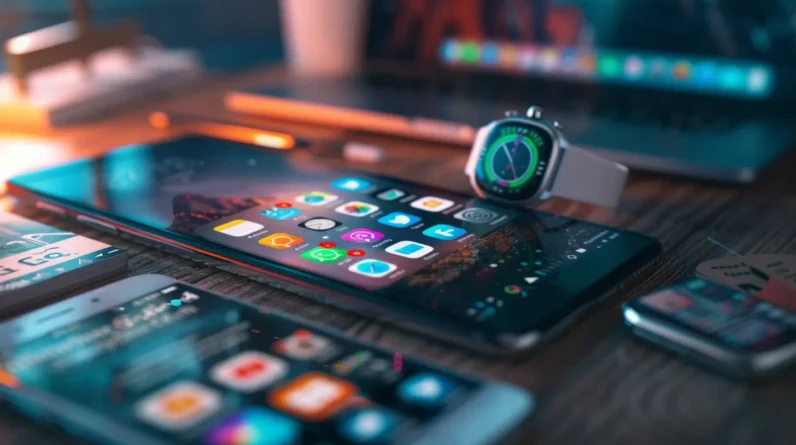
Smart devices are everywhere, from our pockets to our homes, making life easier but also raising privacy concerns. We enjoy the convenience of voice assistants and personalized recommendations, but at what cost to our personal data? Balancing these benefits with the risks of surveillance and exploitation is crucial. Let’s explore how we can use these technologies responsibly, protect our rights, and foster innovation that respects our dignity and freedom. Together, we’ll navigate this complex landscape.
The Pervasive Presence of Smart Devices
As we navigate through our daily lives, it’s hard not to notice the ubiquitous presence of smart devices. From the moment we wake up to the time we go to bed, we interact with countless gadgets that make our lives easier and more efficient. Our smartphones, smartwatches, and smart home devices have become indispensable tools that keep us connected, informed, and entertained. However, as we embrace this convenience, we must also consider the implications of having so many devices constantly collecting data about us. It’s crucial that we strike a balance between the benefits and potential risks of this pervasive technology.
Balancing Convenience and Privacy
While we enjoy the convenience and efficiency that smart devices bring to our lives, we must also consider the potential impact on our privacy. It’s a delicate balance between the benefits of these devices and the potential risks they pose.
| Convenience | Privacy Risk |
|---|---|
| Voice assistants provide hands-free control | Devices constantly listen and record our voices |
| Smart homes automate lighting, temperature, and security | Detailed data about our daily routines is collected and stored |
| Wearables monitor our health and fitness | Sensitive health data may be shared with third parties |
| Location tracking helps us navigate and find nearby services | Our location history can reveal private information |
| Personalized recommendations based on our preferences | Profiling of our interests and behaviors without full transparency |
We must weigh these factors carefully as we integrate more smart technology into our lives.
The Potential for Misuse and Exploitation
Beyond the everyday trade-offs between convenience and privacy lies a more sinister possibility: the potential for our smart devices to be misused and exploited. We must consider the various ways in which these devices can be hijacked for nefarious purposes:
- Unauthorized surveillance by hackers or malicious actors
- Data harvesting and selling without user consent
- Manipulation of device functionality for criminal activities
- Exploitation of vulnerable populations, such as children or the elderly
- Use of collected data to influence user behavior or opinions
Establishing Guidelines for Responsible Use
To mitigate the risks associated with smart device surveillance, we must establish clear guidelines for responsible use. These guidelines should prioritize transparency, consent, and accountability. Manufacturers and service providers need to be transparent about the data they collect and how it’s used. Users should have the right to give or withdraw consent for data collection at any time. Companies must be held accountable for any misuse or exploitation of user data. By implementing these guidelines, we can strike a balance between the benefits of smart technology and the protection of our privacy rights in the digital age.
Safeguarding Our Fundamental Rights in the Digital Age
As we navigate the complexities of smart device surveillance, we must also consider how to safeguard our fundamental rights in this digital age. Let’s explore key strategies to protect our privacy and autonomy:
- Educate ourselves and others on the capabilities and limitations of smart devices
- Advocate for transparent data collection practices and clear privacy policies
- Demand robust security measures to prevent unauthorized access to our personal information
- Support legislation that prioritizes individual rights over corporate interests
- Foster a culture of responsible innovation that values human dignity and freedom
Conclusion
We’ve explored the complex issue of smart device surveillance, weighing the benefits against the potential risks. As we continue to embrace these technologies, it’s crucial that we remain vigilant in protecting our privacy and fundamental rights. By establishing clear guidelines and holding companies accountable, we can harness the power of smart devices while preserving our freedoms in this digital age. The future is in our hands, and it’s up to us to shape it responsibly.







